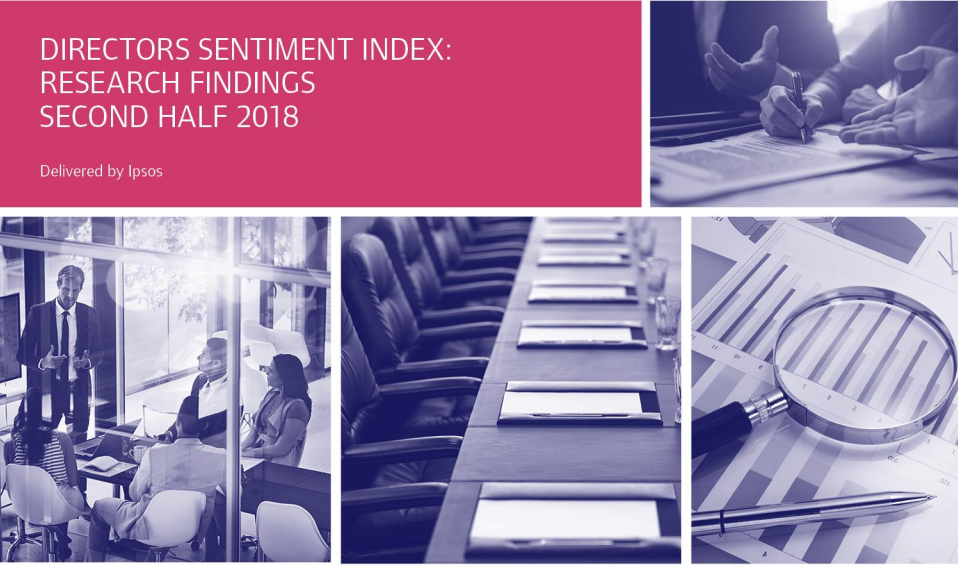Winners of the 2019 Business Leadership Awards were announced at our Annual Conference. Click the link to find out who our winners are.
What is the role of central banks in managing climate change? | London Institute of Banking and Finance
Dr Paul Fisher, well known to many at Climate Alliance has written a very interesting article for the London Institute of Banking and Finance. He asks the question whether central banks should play a role in managing the risks presented by climate change.
Greenhouse gas emissions contribute to coal mine refusal | Norton Rose Fulbright
In an Australian first, development consent for a new coal mine was refused by the Land and Environment Court of NSW (the Court) for reasons that included its material greenhouse gas (GHG) emissions and contribution to climate change.
New Zealand sea level rise: Councils' $8b climate change warning | Stuff
"Costs will likely go far beyond tangible measures; not only will infrastructure be exposed, but so will potential economic development and growth, community health and safety and social support systems."
The Global Risks Report 2019 | World Economic Forum
Extreme weather is again out on its own in the top-right (high-likelihood, high-impact) quadrant of the Global Risks Landscape 2019. The year 2018 was another one of storms, fires and floods.19 Of all risks, it is in relation to the environment that the world is most clearly sleepwalking into catastrophe.
You can download the report here, or go to the WEF webpage for more information.
Sustainable finance: central banks test water on climate risks | Financial Times
Paul Fisher was recently interviewed by the Financial Times as part of an article on sustainable finance. The article provides a good summery of the activities in this area as well as some useful links.
GFG Chairman Sanjeev Gupta awarded Climate Alliance Business Leader of the Year
Congratulations to Sanjeev Gupta!
2018 Climate Alliance National Conference - Summary
Summaries from each of the conference speakers are now available, including photos and presentations. Congratulations to the 2018 Leadership Award winners, see here for details.
Climate Alliance 2018 Business Leadership Award Winners
The forsaken children strike back: 21 young people sue to save planet | SMH
The Trump administration is being sued by 21 children on behalf of themselves and future generations.
CommBank commits to 100% renewables | Renew Economy
One of Australia’s biggest financial institutions, the Commonwealth Bank of Australia has become the first Australian-owned major corporate to pledge to go 100 per cent renewables, joining another 154 international companies that have signed up to the global RE100 program.
Woodside Petroleum joins BHP and Rio Tinto to call for carbon price | The Guardian
‘By the time the science is proven, it will be too late to act,’ chief Peter Coleman says
The warming of our world | Vox
This excellent article provides very graphic forecasts of where US weather is heading. In the Mid West, temperatures are predicted to increase by 5F. The CSIRO has developed a tool that provides similar information on the temperature outlook for Australia.
AICD Director Sentiment Index Survey H2 2018 | Minter Ellison
Directors want action on climate change and renewable energy: For the first time directors nominated climate change as the number one issue the federal government needs to address in the long-term.
Download the full report here
Read Minter Ellison’s post which covers the key points identified in the survey and contains links to related media.
You can also download the summary report from AICD’s website.
Key takeouts
Directors want action on climate change and renewable energy: For the first time directors nominated climate change as the number one issue the federal government needs to address in the long-term.
In agreement on the need for stronger governance: Directors across all industries are focused on governance practices and acknowledge the need for changes to deal with current governance issues. There is strong support (52%) for an increase in penalties for misconduct and for an increase in funding for regulators (57% support).
Less optimistic overall: Director sentiment has declined for the first time in 18 months (and was down 8.5 points on the last survey) although it remains positive at +4.2. The AICD attributes the decline largely to directors feeling more pessimistic around regulation, legal issues and directorship conditions more broadly.
PRA ‘expects’ banks and insurers to report climate risks | Gibson Media
"Insurers and banks are to be expected to manage and report their climate-related risks, according to a draft supervisory statement from the UK’s Prudential Regulation Authority (PRA).
The consultation paper, which was described as “a major step for a regulator of a global financial centre”, says the risks from climate change are far-reaching and foreseeable and require a strategic approach." Read More
Australia's first Business Renewables Centre to help Australian businesses to switch to renewables | ARENA
The Australian Renewable Energy Agency (ARENA) has today announced it will help build Australia’s first Business Renewables Centre to encourage Australian businesses to make the switch to renewable energy.
“The Business Renewables Centre will help in that transition by using its expertise in running programs, entrepreneurship, innovation, education and other sustainability objectives to make it easier for companies and councils to enter the renewables market.”
Business to go it alone on climate policy | AFR
In a salutary indicator of how our politicians have created a vacuum in climate change policy, the Business Council of Australia feels it must provide leadership.
"The nation's energy companies and biggest electricity users have given up on politics and begun backroom talks about a self-regulated package of measures to reduce greenhouse gas emissions, restore energy reliability and improve investor stability.”
Sudden tightening of financial conditions poses a risk for financial stability | De Nederlandsche Bank
The budding economic crises in a number of emerging countries, like Turkey and Argentina, illustrate that a sudden tightening of financial conditions constitutes one of the major risks to financial stability.
Financial conditions in the developed countries have remained accommodative to date, but a turnaround is possible in these countries, too. The trigger for such a turnaround may be a quicker than anticipated tightening of monetary policy in the United States, but it may also be further escalating trade tensions, or a hard Brexit. These developments are discussed in our Autumn 2018 Financial Stability Report (FSR), published today.
Accommodative financial conditions are fuelling vulnerabilities
Ten years after the crisis, financial conditions in most developed countries are accommodative. Prolonged accommodative financial conditions fuel financial stability risks, however, as they lessen the incentive to pay off debts and stimulate risk-seeking behaviour on the financial markets. If financial conditions were to tighten suddenly, debtors will be severely hit by rising financing costs and financial markets may experience sharp corrections, which may in turn translate into heavy losses in the investment portfolios of financial institutions.
Risks are already surfacing in a number of emerging countries
Particularly in emerging countries with large financial and macroeconomic imbalances, financial conditions have been tightening over the past few months. This has painfully revealed the vulnerabilities that have been building up over time, such as high corporate debts denominated in foreign currencies. All emerging countries may be faced with ongoing capital outflows if investor confidence deteriorates and investors at the same time do not differentiate between vulnerable and less vulnerable countries. In due course, a budding economic crisis in emerging countries may also hit the Dutch financial sector through direct exposures and negative confidence effects.
Rising real estate prices demand attention
Real estate markets in the Netherlands are running at full steam, especially in prime locations. House price rises are driven by the insufficient supply of homes, low interest rates and vigorous economic growth. Easing of the borrowing capacity relative to the borrower’s income is undesirable as this would only serve to fuel overheating in the market. In order to ease the pressure on house prices, the housing supply must be increased, particularly in the middle segment of the rental market. The price increases on the commercial real estate market are being driven mainly by the search for yield among investors. As a result, this market is more sensitive to a turnaround in sentiment. As vulnerabilities often build up in times of economic boom, financial institutions must pay extra attention to monitoring and managing the risks associated with commercial real estate in the period ahead.
Further efforts by insurers remain necessary
This issue of DNB's FSR also discusses the vulnerabilities in the Dutch insurance sector. Although insurers are making progress in developing a future-proof insurance sector, further efforts of insurers, supervisors, and policymakers remain necessary, including successful implementation of the recovery and resolution framework.
Disruptive energy transition stress test
DNB developed a targeted stress test in order to quantify the possible effects of a disruptive energy transition on the Dutch financial sector. The stress test revealed that a disruptive energy transition may induce severe losses for Dutch financial institutions. Governments can prevent unnecessary costs by implementing timely and effective climate policies, while financial institutions should include energy transition risks in their risk management process.
Dutch appeals court upholds landmark climate change ruling | The Guardian
“Governments can no longer make promises they don’t fulfil. Countries have an obligation to protect their citizens against climate change. That makes this trial relevant for all other countries.”











